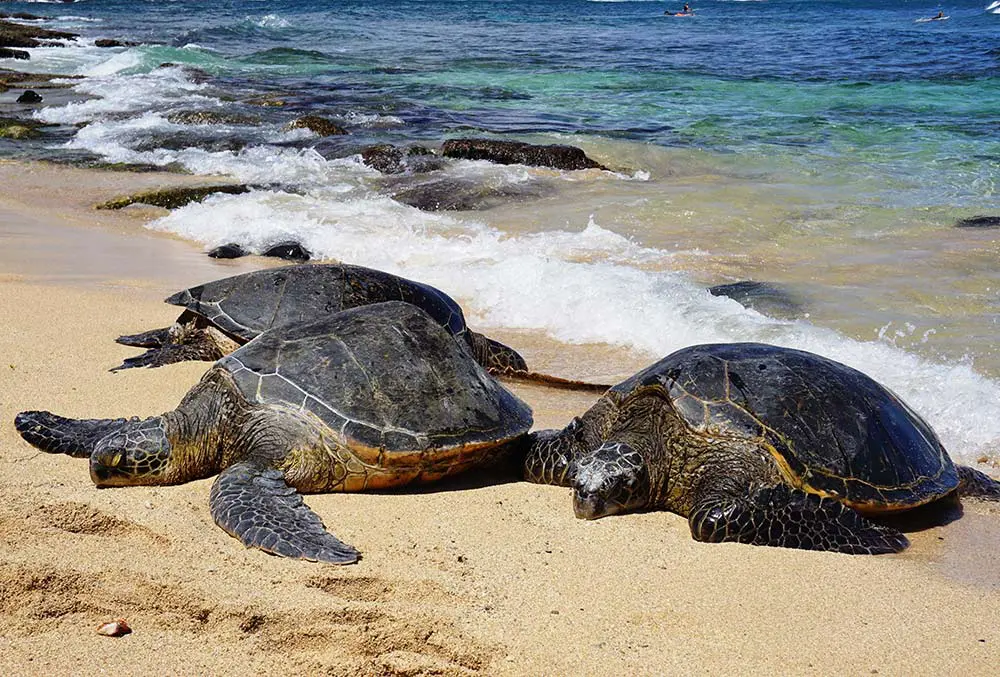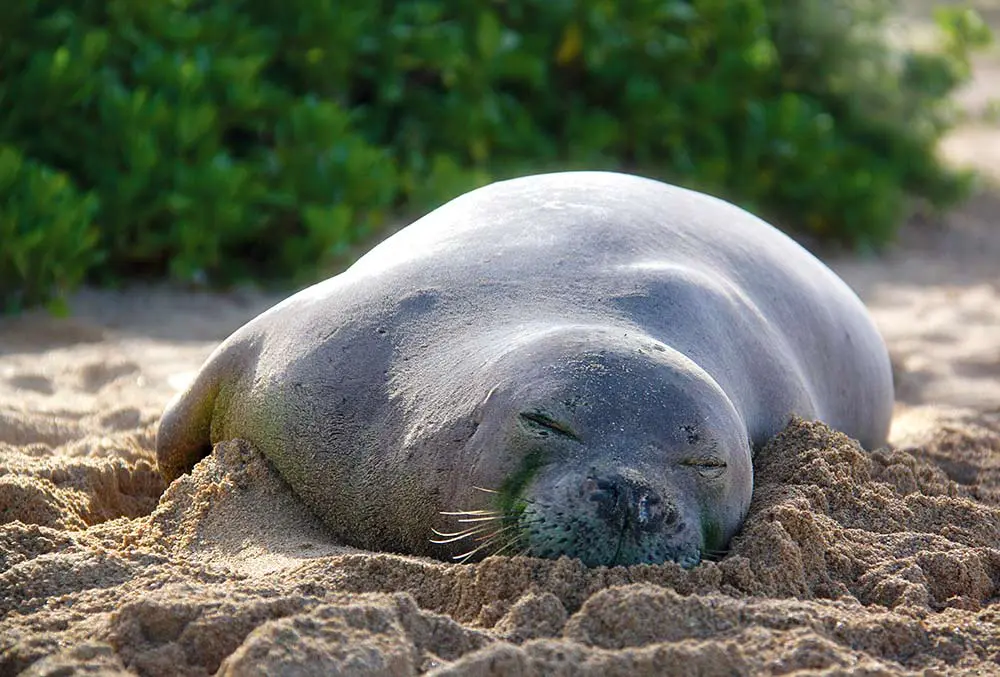Jan 3, 2020
Kuleana for Marine Wildlife

Hawaiʻi Island is a beautiful place for people to live; its beaches magnificent places for us to play. But long before we came here, marine wildlife made their home here, on land and in the sea. Today, it’s our kuleana, our responsibility, to help care for these fellow creatures, and their habitats.
Honu, Hawaiʻi’s green sea turtles, are frequent visitors to island coastlines, where they, like us, like to bask in the sun along the shore. When they’re resting in this way, honu may be almost motionless, causing some folks to fear they’re injured or even dead.
Usually, that’s not the case. And, it’s very important to only enjoy watching sea turtles from at least ten feet away when they’re on land. In the ocean, remember to give turtles space; don’t try to touch them.
And, if you do see a sick, injured or dead sea turtle stranded on land, please call 808-881-4200 or 808-327-4961.
A wonderful way to see and enjoy the turtles is on the 4th of July when Mauna Lani Resort—continues a 30-year tradition, hosting “Turtle Independence Day.” In partnership with Oahu’s Sea Life Park, baby honu are sent to live in saltwater ponds for two to three years. Then, if they’re large enough and healthy enough, they are released into the ocean for all to see. The event begins at 10:30 a.m., and includes live entertainment, an educational display about green sea turtles and July 4th Barbeque.

Another marine animal that loves to sunbathe is the Hawaiian Monk Seal (ʻIlio-holo-i-ka-uaua, or “dog that runs in rough water”). Hawaiian Monk Seals are endangered, with only about 1,100 alive today.
A Kona organization is working very hard to help nurture the seal population. Ke Kai Ola (“the healing sea”) opened in 2014 to care for sick, injured and orphaned baby seals. Its facilities include rehab areas for newborns, pens and pools for juveniles, a quarantine area, medical clinic and a food prep kitchen.
Visitors are welcome to come and talk story with the staff, watch live video of current patients, and learn more about these amazing mammals. Volunteers are always welcome too!
As above with the honu, please don’t approach or disturb seals in any way. If you should happen on a seal in distress, please call 808-987-0765.
Kahaluʻu Bay Education Center is a project of the Kohala Center, dedicated to educating visitors about, among other things, “Reef Etiquette.” They’re open daily, 9:30 a.m. to 4 p.m., with lots of information, as well as snorkel gear rentals and friendly conversation.
- When snorkeling or diving, you should not touch, walk on, stand on, or break live corals. Corals are living animals that provide food and shelter to other reef animals.
- Try not to kick up sand or sediment when on the reef. It blocks sunlight that is essential to corals.
- Do not remove anything from the reef. Everything has a purpose. Taking live coral or rock with attached marine life is illegal in Hawai‘i.
- Hawaiian reef fish play a vital role to the health of the reef system because they feed on algae. Fish feeding upsets the natural balance on the reef. Introduced food can be harmful to fish. It is also illegal. Reef fish such as the butterflyfish and parrotfish naturally eat coral and algae.
- If you are using sunscreen, use an environmentally friendly brand and put it on at least 15 minutes before you enter the water. List of coral-friendly sunscreens and where to buy them on the Island: http://www.kohalacenter.org/docs/resources/kbec/Eco_Sunscreen_Guide.pdf
- Dispose of your trash properly! Plastics in the water can damage and kill marine life.




